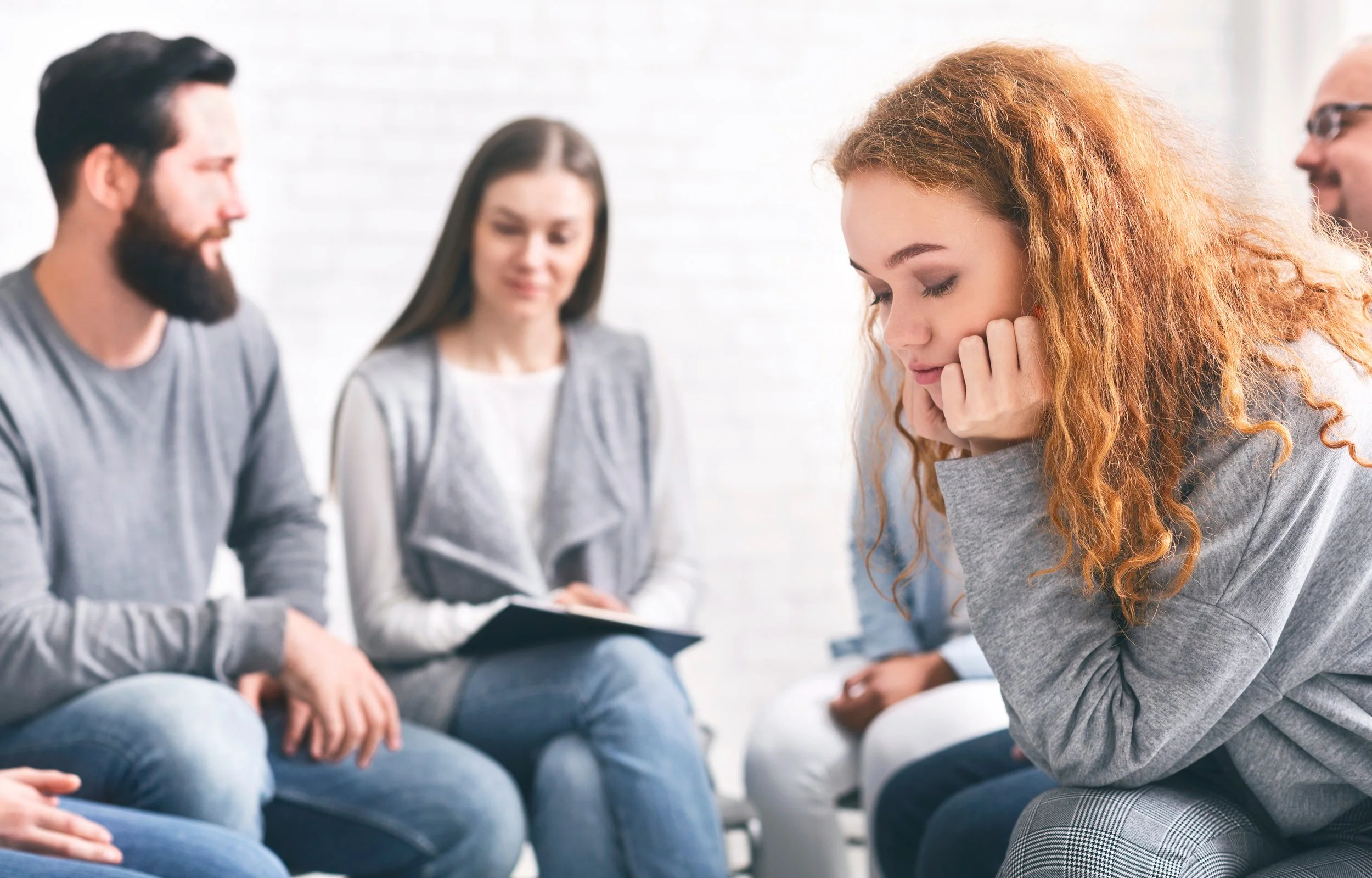How counselling can help with social anxiety
In this article: understand what social anxiety feels like, where it comes from, and how therapy can help you feel more at ease with others.
What does social anxiety really feel like?
Social anxiety is often invisible from the outside, but it can also shape a person’s entire day. Many people describe it as a constant worry about saying the wrong thing, being judged, or appearing awkward. Even simple moments that many take for granted like introducing yourself, speaking in a meeting, or joining a group conversation can feel intimidating to people with social anxiety.
For other people, the anxiety can show up later. People go home and replay everything they said during the day and wondering if they sounded strange or if someone may have taken something the wrong way. It can be exhausting to live with this level of self-monitoring, especially when you know you want to build connections with others but your body keeps reacting with tension or panic.
However, these experiences are incredibly common and you are definitely not alone if you feel this way.
Why social anxiety develops
There is rarely one single reason behind why a person develops social anxiety. For some people, the roots go back to childhood or their adolescence. Being teased, judged, or misunderstood can leave a lasting impression that affects them for years. Others grew up in environments where being quiet or cautious kept the peace.
Social anxiety can also develop slowly. A stressful job, a negative social experience, or a big life transition can create new insecurities. Perfectionism plays a big role too. When you feel pressure to always say the right thing or appear confident, social situations can feel like more intense moments instead of just everyday interactions.
Living in a city like Vancouver can add to that stress. People often feel pressure to appear successful, put together, or socially capable, even when they are struggling internally. That pressure can quietly feed social anxiety over time.
How counselling helps with social anxiety
Counselling gives you a place to slow down and talk openly about what you are experiencing. Instead of pushing yourself through uncomfortable situations or hiding what you feel, therapy gives you safe space to understand your anxiety without judgment. A therapist can help you become more aware of patterns in your thinking and understand why your body reacts the way it does as well as explore new ways of responding to stress.
Many people find that simply talking about their anxiety is relieving because it frees them from trying to manage everything alone. Counselling is not about forcing you to become outgoing or pushing you into uncomfortable situations. It is rather about helping you feel more comfortable, confident, and grounded in your own way of being around others.
What counselling for social anxiety looks like in practice
Therapy for social anxiety is very practical. Sessions often involve talking through situations that feel difficult and exploring what thoughts, emotions, and physical sensations show up in those moments. A counsellor might help you practice grounding techniques if your body goes into fight-or-flight mode. You might rehearse a conversation that worries you or explore what it would be like to set small, realistic goals for social connection.
These steps help build familiarity and confidence so that social situations feel more manageable over time. For many people, the biggest change is learning to soften their inner critic that tells them they are awkward, strange, or unlikable.
Next steps
Living with social anxiety can make the world feel smaller than you want it to be. It can keep you from friendships, opportunities, or simple moments of connection. But social anxiety is treatable, and many people find that therapy helps them feel more at ease, more confident, and more connected to the people around them. Counselling gives you space to understand yourself, practice new skills, and make gradual changes that feel meaningful. Even small shifts can open the door to a fuller, more comfortable social life.
Five ways counselling can help you manage social anxiety
1. Better understand your triggers
Therapy helps you pinpoint the exact situations that create anxiety. Once you know what sets it off, you can approach those moments with more clarity and confidence.
2. Challenge harsh self-judgment
Many people with social anxiety are incredibly hard on themselves. Counselling helps challenge those beliefs and replace them with more balanced and compassionate thoughts.
3. Practice new social skills in a safe environment
Therapy gives you a private space to practice conversations, try out new strategies, or explore feared situations without pressure. These small experiments help build real-world confidence.
4. Strengthen your emotional regulation
Social anxiety often shows up physically. Your heart races, your stomach tightens, or your mind goes blank. Counsellors teach grounding and calming techniques that help you stay present when anxiety hits.
5. Build confidence with small steps
Therapy focuses on small, realistic goals that move you forward at a pace that feels doable. Each step builds confidence and makes the next one easier.
Affordable counselling for social anxiety at the Vancouver Therapy Collective
At the Vancouver Therapy Collective, we offer affordable social anxiety counselling for adults in Vancouver or virtually anywhere in British Columbia.
Clients are matched with practicum counsellors in the final year of their master’s program or with full trained associate therapists, all working under close professional supervision. Fees are based on a sliding scale that reflects your individual financial resources. Counselling is available in person at our Kitsilano office and online across BC, with flexible daytime, evening, and weekend appointments. We offer a free introduction call to anyone who is interested.

